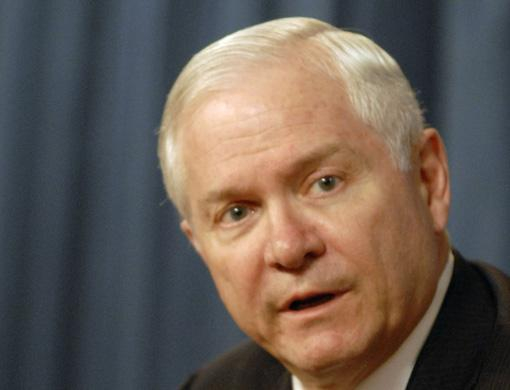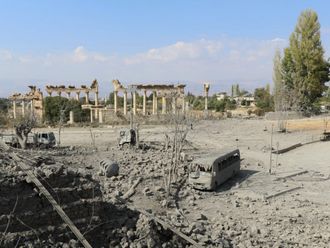
Washington: Technical glitches and sanctions that have delayed Iran's nuclear programme give the US and its partners more time to exert pressure without resorting to military action, US Defence Secretary Robert Gates said.
"As we say, all options are on the table and we prepare for all options," Gates said yesterday in an interview with Bloomberg Television during a visit to China. "But I think that if we have bought some additional time, that it does give greater opportunity to the political-economic strategy."
Possible sabotage
The US has aimed for years to persuade leaders in Tehran to give up development of technology that could produce a nuclear weapon. The Obama administration last year won support from China, Russia and the European Union to intensify financial and economic sanctions.
Reports indicate that possible sabotage has hindered Iran's efforts to enrich uranium, a process necessary to produce an atomic bomb. Iran last month began reducing three-decade-old energy subsidies worth as much as $50 billion (Dh183.9 billion) as restrictions from the United Nations, the US and Europe took their toll.
The possible delays won't hurt US efforts to garner support to keep up the pressure on Iran, Gates said. "Sanctions are evidence of the international community's belief that these kinds of pressures are the best way to deal with this problem", he said. Israel's outgoing head of intelligence, Meir Dagan, said recently Iran wouldn't be able to produce a nuclear weapon before 2015, three or four years later than earlier Israeli estimates. US Secretary of State Hillary Clinton on Tuesday cited the effect of sanctions and technical problems.
Computer virus
"The most recent analysis is that the sanctions have been working, they have made it much more difficult for Iran to pursue its nuclear ambitions," Clinton said at a town hall meeting at Zayed University in Abu Dhabi.
"Technological problems have also slowed Iran's progress, she said. "Their programme from our best estimate has been slowed down, so we have time, but not a lot of time."
Iranian President Mahmoud Ahmadinejad said on November 29 that several centrifuges used to enrich uranium were affected by malicious computer software. Symantec Corp, the world's largest maker of computer security software, said in a November 12 study that the Stuxnet virus may have been created to sabotage Iran's uranium-enrichment work.
Iran's leaders say their programme is meant for peaceful means, including power generation and medical research.










